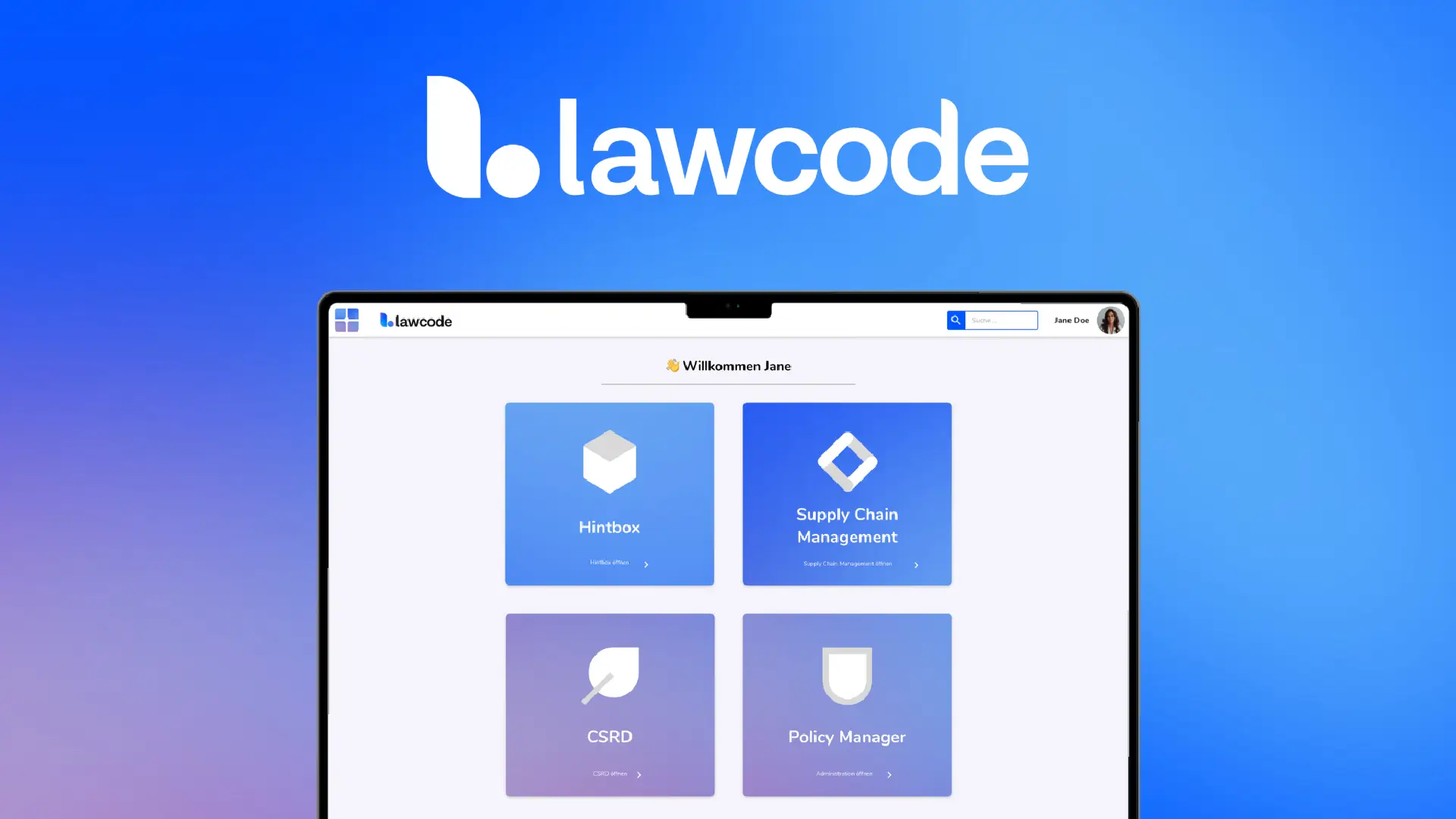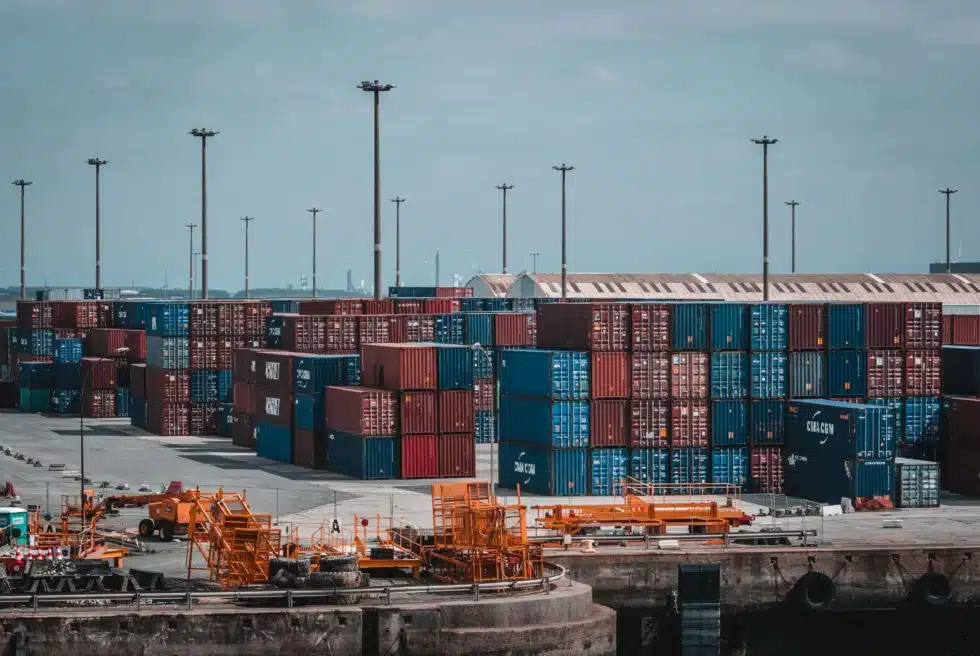Supply Chain Act
What is the supply chain law?
The aim of the law is to ensure the protection of human rights in global supply chains. It also serves the global implementation of the UN Guiding Principles on Business and Human Rights in Germany. It is intended to ensure that abuses in companies become transparent and that violations of human and environmental rights in such companies and in supply chains are ended.
Violations of human and environmental rights arising from Section 2 of the LkSG may include:
- unequal treatment, for example, on the basis of health status, disability, ideology or sexual orientation, in particular by paying unequal pay for work of equal value.
- All forms and types of child labor and slavery.
- Withholding a reasonable wage (at least the minimum wage established under applicable law).
- Water pollution, air pollution, harmful noise emission.
- The non-environmentally sound handling, collection, storage and disposal of waste.
Who is affected by the Supply Chain Act?
§ Section 1 of the LkSG defines which companies must comply with the requirements in practice. The LkSG will come into force from January 1, 2023 for companies with more than 3000 employees. From January 1, 2024, it will even apply to companies with more than 1000 employees.
It is important to note the expanded group of whistleblowers defined by the law. Whistleblowers are no longer only persons from the direct business area, but also from direct and indirect suppliers.
Why should smaller companies be concerned with the Supply Chain Act?
Small companies with less than 3000 or 1000 employees should also deal with the law in good time:
- Major customers expect compliance from the supply chain.
- Contractual terms and conditions of major customers oblige smaller suppliers to adhere to compliance requirements.
- Without compliance and especially proof of the LkSG, new suppliers will no longer get on the panel of customers. They will no longer receive new orders.
- Adherence to compliance requirements creates trust as well as transparency and strengthens your company.
The LkSG in corporate practice
The following core compliance obligations arise from the law for companies:
Establishment of complaint management system
Companies are required by law to set up a complaints procedure. This enables people to report breaches of duty in the supply chain. The purpose of the complaints procedure is to put an end to grievances in the supply chain or to prevent them. This can protect the company from fines and, in particular, damage to its reputation. Anonymous reporting channels in particular are an effective means of avoiding such risks and damage.
With our Hintbox and the supply chain form we developed, you can implement these requirements quickly, securely and easily. Our Hintbox is ISO 27001 certified and DSGVO compliant. It is also permanently accessible to all suppliers worldwide via a link.
Issuance of a policy statement on respect for human rights
The company management must issue this declaration (Code of Conduct). Among other things, it contains the procedure by which the company fulfills its obligations. It also documents the company's expectations of its employees and suppliers in the supply chain.
Carrying out regular risk analyses
Risks in the area of human and environmental rights in the company's own business area must be analyzed and prioritized appropriately. This risk analysis must be carried out once a year. The company must be able to know which suppliers it has contracted and what the supply chains are like. Furthermore, critical suppliers must be subjected to special controls and requirements.
Taking preventive and remedial action
If the risk analysis reveals a risk that would result in a violation of the law, the company must take preventive measures in its own business area. These are defined as implementation strategies and control measures derived from the Code of Conduct. They can take the form of, for example, conducting training courses or developing strategies to minimize risks. This also includes preventive measures vis-à-vis a direct supplier. For example, considering human rights and environmental expectations when selecting one.
Further measures are set out in Section 6 of the Supply Chain Sourcing Obligations Act.
Public documentation and reporting
Compliance with the obligations arising from the Supply Chain Act must be documented on an ongoing basis. Companies are required to prepare a report on the fulfillment of their legal obligations in the previous fiscal year and to publish it on their website.
If infringements are disclosed, business relations do not have to be terminated immediately. Solutions should be sought together with the affected party in the supply chain. An action plan, for example, can help here.
What are the consequences of failure to implement?
If the requirements of the law are not implemented or not implemented correctly, BAFA (Federal Office of Economics and Export Control) can impose fines to enforce compliance with the law.
Fines of up to €800,000 may be imposed for administrative offenses. In the event of failure to establish an appropriate complaints procedure, a penalty payment of up to €50,000 may be imposed.
In addition, there are the economic disadvantages described above.
The legislative process at a glance
- On July 22, 2021, the law was executed by the Federal President and published in the Federal Law Gazette. The legislative process has been formally completed and the so-called Supply Chain Act will enter into force on January 1, 2023.
- On June 11, 2021, the German government's bill on corporate due diligence in supply chains, as amended by the Labor and Social Affairs Committee, was adopted by the Bundestag. In a roll call vote, 412 members of parliament voted in favor of the bill, 159 voted against and 59 abstained.
- On March 10, 2021, the European Parliament adopted the "Legislative Report on Human Rights and Environmental Due Diligence of Businesses" with a cross-party majority of 504 votes out of 695. A legislative report is a recommendation to the EU Commission to introduce a law on human rights and environmental due diligence.
- April 22, 2021 Consultation of the Bundestag in first reading on the draft law on corporate due diligence in supply chains.
Even though the German Supply Chain Act has not yet come into force, there is already talk of tightening it up, i.e. a Europe-wide EU Supply Chain Act. This is intended to place the onus on smaller companies in particular.
Our tips for practice
Do not wait too long.
- Take care of setting up professional complaint channels in good time.
- Implement your digital complaint channels today with our ISO 27001 certified Hintbox.
Implement the due diligence obligations from the Supply Chain Act swiftly
- Validate and evaluate your intermediate and immediate suppliers.
- Implement documentation and audit requirements in a timely manner.


